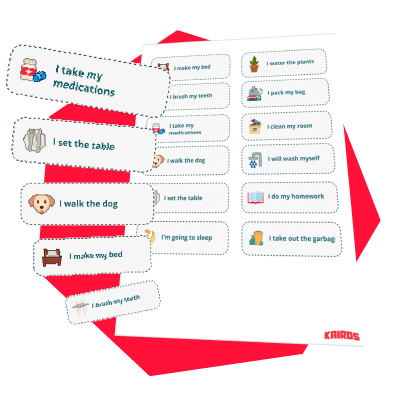Nurturing empathy in children with ADHD: Practical tips for parents and teachers
Empathy is a crucial social skill that helps children understand and connect with others' emotions. For children with ADHD, developing empathy can be challenging due to difficulties with attention, impulsivity, and social cues. However, with the right strategies, parents and teachers can nurture empathy in these children, helping them build stronger relationships and improve their emotional intelligence.
Understanding the challenges
Children with ADHD often face unique challenges that can affect their ability to develop empathy:
- Impulsivity: Impulsive behaviors can make it difficult for children to pause and consider others' feelings.
- Attention Difficulties: Struggling to focus on social interactions can lead to missed social cues.
- Emotional Regulation: Difficulty managing their own emotions can make it hard for children to empathize with others.
Strategies for parents
Model empathetic behavior
Children learn by observing the adults around them. Model empathetic behavior by:
- Expressing Your Emotions: Share your feelings openly and explain why you feel that way. For example, "I'm feeling sad because my friend is moving away."
- Demonstrating Active Listening: Show how to listen actively by making eye contact, nodding, and summarizing what the other person has said.
Use role-playing
Role-playing different scenarios can help children practice empathetic responses. Create situations where your child has to consider another person's feelings and respond appropriately.
Encourage perspective-taking
Help your child see situations from others' perspectives by asking questions like, "How do you think your friend felt when that happened?" or "What would you do if you were in their shoes?"
Reinforce positive behavior
Praise and reinforce empathetic behavior when you see it. Use specific praise such as, "I noticed you helped your friend when they were upset. That was very kind."
Create a safe environment
Ensure your child feels safe to express their emotions. Validate their feelings and provide comfort, helping them understand that all emotions are valid.
Strategies for teachers
Incorporate social-emotional learning (SEL) programs
Implement SEL programs that focus on developing empathy, self-awareness, and social skills. Activities like group discussions, collaborative projects, and empathy-building exercises can be beneficial.
Foster a supportive classroom environment
Create an inclusive and supportive classroom environment where students feel respected and valued. Encourage positive interactions and address any instances of bullying or exclusion promptly.
Use literature and stories
Reading books and stories that highlight empathy can be a powerful tool. Discuss the characters' emotions and actions, and ask students to share their thoughts on how they would feel in similar situations.
Practice mindfulness
Introduce mindfulness exercises to help students manage their emotions and develop self-awareness. Techniques like deep breathing, meditation, and guided imagery can improve focus and empathy.
Encourage cooperative learning
Use cooperative learning strategies that require students to work together and support each other. Group projects and peer tutoring can help children with ADHD develop social skills and empathy through collaboration.
Combining home and school efforts
Consistency between home and school is key to fostering empathy in children with ADHD. Parents and teachers should communicate regularly to ensure they are using similar strategies and reinforcing each other's efforts.
Regular communication
Maintain open lines of communication between home and school. Share observations, strategies, and progress reports to provide a consistent approach to empathy development.
Collaborative goals
Set collaborative goals for empathy development that can be worked on both at home and in school. For example, both parents and teachers can encourage the child to practice active listening and share their feelings regularly.
Joint activities
Organize joint activities that involve both parents and teachers. Workshops, parent-teacher meetings, and school events can provide opportunities to discuss and reinforce empathy-building strategies.
Conclusion
Developing empathy in children with ADHD is a gradual process that requires patience, consistency, and collaboration. By modeling empathetic behavior, using role-playing, encouraging perspective-taking, and fostering supportive environments at home and school, parents and teachers can help children with ADHD build stronger social connections and improve their emotional intelligence.
For more practical tips and resources, explore educational materials on social-emotional learning and mindfulness, and seek support from professionals who specialize in ADHD and child development.
